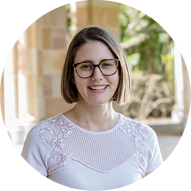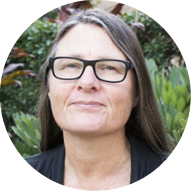About the event
There has never been a more urgent need to revive damaged ecosystems than now. The UN Decade on Ecosystem Restoration has just nine more years to restore the planet and, while there are global moves afoot to undertake large-scale ecological restoration, coastal wetlands must be a key priority.
Law and legal instruments have a key role to play in the restoration of coastal wetlands, and the recent experience in developing the Australian Government’s Blue Carbon methodology demonstrates how law can be used to remove barriers to restoration and pave the way for progress.
Join our interdisciplinary panel of coastal restoration experts over breakfast, as they consider how and why ‘law matters’ as we move forward with repairing these vitally important habitats in Australia and across the globe.
Background
The need for restoration is especially acute in the coastal wetland context as these ecosystems have been heavily degraded historically. There is so much to gain from their restoration: coastal wetlands are highly effective carbon sinks, they protect coastal communities and infrastructure from storm inundation and erosion, they enhance fisheries and water quality, and are important sites culturally and spiritually.
During the event, our panel of experts will provide insights on how ecosystem services are being integrated into law and policy today. Including the important balancing act between the long-term need to safeguard and leave space for coastal wetlands, and the ever-present need for immediate land use in many economic contexts.
About the presenters
 Justine Bell-James
Justine Bell-James
Associate Professor, TC Beirne School of Law
Justine Bell-James is an Associate Professor at the TC Beirne School of Law with expertise in environmental and climate change law and climate change litigation. The major focus of her research is protecting Australia’s natural coastal ecosystems from climate change, which is a delicate and important balancing act. She has undertaken impactful work through the UQ Law School in partnership with global environmental organisation The Nature Conservancy to find a legal balance between the long-term need to safeguard and leave space for coastal wetlands, and immediate land use. She has also worked with The Australian Government’s Clean Energy, helping to develop a methodology for including blue carbon – the carbon stored within coastal ecosystems – as an eligible offset project.
 Professor Catherine Lovelock
Professor Catherine Lovelock
ARC Laureate Fellow, School of Biological Sciences, Faculty of Science
Professor Catherine Lovelock's research focusses on the influence of environmental change, including climate change, on the ecology of coastal and marine plant communities and in providing knowledge to underpin conservation and restoration of these ecosystems now and in the future. She is an expert in mangrove forest physiology and ecology and ‘Blue Carbon’ – the carbon stored within coastal ecosystems specifically. Blue carbon was approved as part of Australia’s climate change framework in January 2022.
 Dr Nicole Shumway
Dr Nicole Shumway
Postdoctoral Research Fellow, Centre for Policy Futures
Dr Nicole Shumway is Postdoctoral Research Fellow at the Centre for Policy Futures in the Reef Restoration and Adaptation Program. Her research at the Centre explores the policy implications of innovative marine restoration practices in the Great Barrier Reef. Her research assesses the potential impacts of human and environmental change on threatened species and ecosystems, and works to translate science into policy that can solve real world problems and increase the sustainability of ecosystems.
